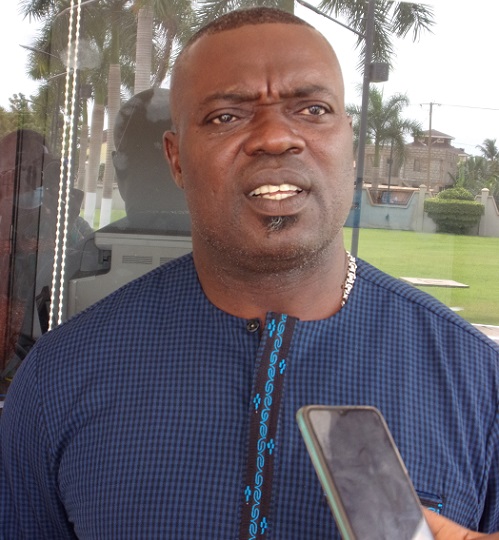More than 1.3 million registered firearms owned by civilians in the country are to be assigned unique codes for easy identification, traceability and accountability.
It is part of an ongoing exercise by the National Commission on Small Arms and Light Weapons (NCSALW) to ensure that all guns in the country belonging to both security agencies and citizens are given distinctive features.
The NCSALW Executive Secretary, Jones Applerh, told the Ghanaian Times in an interview in Accra last Tuesday that the exercise would start in the coming months when marking of guns in some of the security agencies was completed.
The interview was on the sidelines of a workshop held to enable security experts review the country’s firearms legislation and integrate global instruments into them.
It was organised by the Commission in partnership with the African Union (AU) and the Bonn International Centre for Conflict Studies with support from German Federal Foreign Office.
Started about two years ago, the National Weapons Marking involves the assigning of markings such as the Economic Community of West African States (ECOWAS) logo and country codes and capturing of owners information into a database.
The exercise is in line with Article 18 of the ECOWAS Convention on Small Arms and Light Weapons, which mandates countries to mark their weapons to enable identification and traceability.
A baseline survey conducted by the NCSALW in 2014 showed that about 2.3 million arms were in the hands of adult civilians out of which, only 1.2 million, representing 53 per cent, were registered, with 47 per cent unaccounted for.
Mr Applerh explained that the marking by the commission was different from the primary serial numbers and other information already imprinted on the guns to identify the manufacturer, the country of origin, among others or the registration codes given by the Ghana Police Service during the registration.
“Anyone who has a firearm now, you have a mark on your gun papers which identifies your gun. For now what the Police does is that the marking is on your paper but not on your gun. This marking we are doing is in addition to the factory marking so helps in police and crime protection,” he said.
Mr Applerh said in this era where the national identification card (Ghana Card) is expected to be linked with all cards, there was a possibility of linking the Ghana card numbers with the unique codes.
“The essence of the exercise is to curtail the abuse of guns, discourage people from giving their guns to unauthorised people also for the country to have a fireman database.
“It will also encourage people to come forward when their guns are stolen. It will also help us to know the number of guns that have left into the elicit world so we can check the proliferation,” he said.
Giving an update on the marking of the security agencies firearms, Mr Applerh said, the commission had finished that of the Ghana Immigration Service; done 95 per cent of Ghana Police Service guns; marked most of those for the Ghana Armed Forces, adding that the marking would continue as and when they buy new guns.
BY JONATHAN DONKOR

